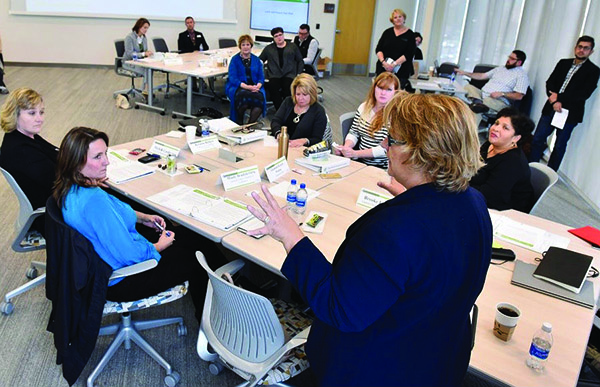August 2018, Vol. 245, No. 8
Features
Creating a Labor Force in Your Own Back Yard
Spotlight on Utilities
By Michael Reed, Managing Editor
As far back as 2013, Consumers Energy, which has almost 28,000 miles of gas mains to maintain throughout Michigan, became painfully aware of what has become an increasingly obvious challenge throughout the industry.
At that time, the company needed to hire 150 workers to beef up its efforts to upgrade its pipelines as part of an enhanced infrastructure replacement program. And, when about 4,000 applicants from job fairs responded it appeared filling all the positions quickly would be a simple enough task.
However, after screening the candidates, only 50 of the applicants were found to be qualified. That’s when management decided it was time to rethink the company’s workforce strategy.
“We found most [candidates at that time] did not have the requisite knowledge or basic skills needed to perform the job,” said Dan Malone, Consumers Energy’s former senior vice president for engineering, who has since retired. “This was a wake-up call, and we knew we needed to apply innovative thinking in order to provide the kind of services our customers want and need.”
As part of the solution, in both 2015 and 2016, through a partnership with third-party union training provider Power for America, Consumers Energy’s offered the Utility Military Assistance Program – a three-week unpaid training program for military veterans and active reservist/guard members.
“We brought the individuals to our training facility in Potterville, Mich., housed them at Fort Custer, fed them three meals a day, and transported them back and forth each day,” said Brian Wheeler, senior director of Public Information.
Upon successful completion of the three-week training, candidates were hired on as paid interns for 90 days. If that worked out, the prospective employee was hired for an additional 10-month period. Nearly 90 military veterans were hired through the program, with a retention rate well above 90%, Wheeler said.
In addition to the Power for America program, Consumers Energy has also formed strong collaborators with Lansing Community College and Alpena Community College. Both offer electric line-worker training curriculum. The 13 months of courses begin with academics, physical fitness training and climbing fundamentals. (Previous Consumers Energy found in 2013 that many job applicants were unable to handle the physical demands of the work.) Many students are invited to attend a 10-week climbing school at the company’s Marshall Training Center at the end of the program.
In an effort to address the future need for management personnel, Consumers Energy also started working with Jackson College, a community college near the company’s corporate headquarters. Jackson College offers associate’s and bachelor’s degrees in energy management, with the company offering internships for students in those programs.
“We are using a variety of approaches to encourage good people to work for Consumers Energy,” Wheeler said. He described creating a qualified pool of individuals ready for jobs at the company as “a much bigger feat” – one that needs to begin earlier in life.
“First and foremost, in our opinion, is that students in middle and high school need to first be aware that there are very good jobs in energy to be had,” Wheeler said. “We all know that high-schoolers know they can land a job in engineering or IT, or as doctors, lawyers teachers, etc., but do they even think about working for an energy company?”
To that end, the Michigan Energy Workforce Development Consortium has worked to build awareness at the state level through a number of moves. Among those:
- A state level of a “cluster” framework in energy at the high school Career Tech level. This means that high school students obtain training in energy careers through their career and technical education centers, found in most counties. There are currently three schools offering this training, and several more starting in the fall.
“Just like students would go to classes for construction trades, cosmetology or health sciences, they can now have access to energy in the same way,” Wheeler said, adding Consumers sponsors the schools that offer training, providing site visits, guest speakers and equipment donations in support of the effort.
- Careers In Energy Week, which takes place each October. At that time, energy-focused events and opportunities are highlighted and companies host tours for local career and technical education students.
- An energy industry fundamentals course has been made available through the National Center for Energy Workforce Development. Upon passing an assessment at the end of the 120-hour instructor-led course, students receive national credentials.
Consumers is working with high schools and colleges throughout the state to build this into their programming. If students take this at the high school level, and pass the assessment, they can then waive this course in their college program.
“Certainly, anyone applying for a job in energy with this fundamental knowledge, would have a leg-up over someone who had none,” Wheeler said. P&GJ
“Spotlight on Utilities” highlights innovations and achievements of those in the business of providing natural gas to homes and businesses. If you have a suggestion for inclusion in the column, email michael.reed@pgjonline.com.






Comments